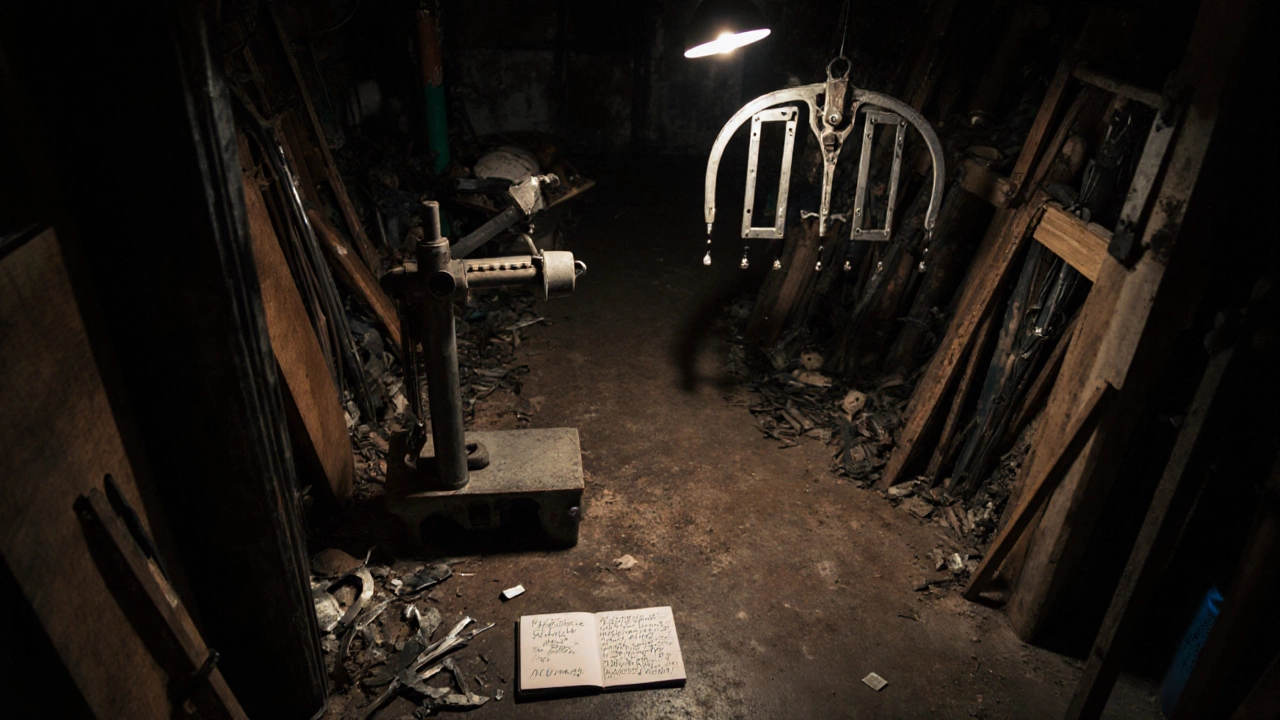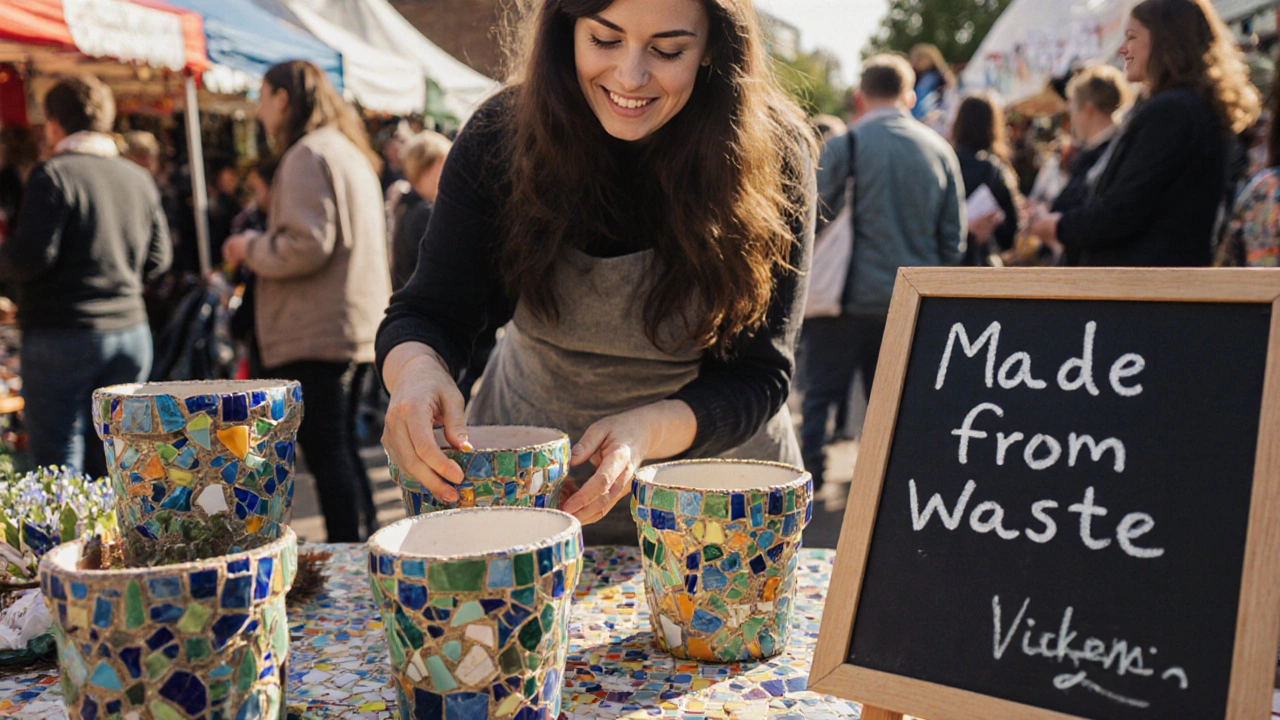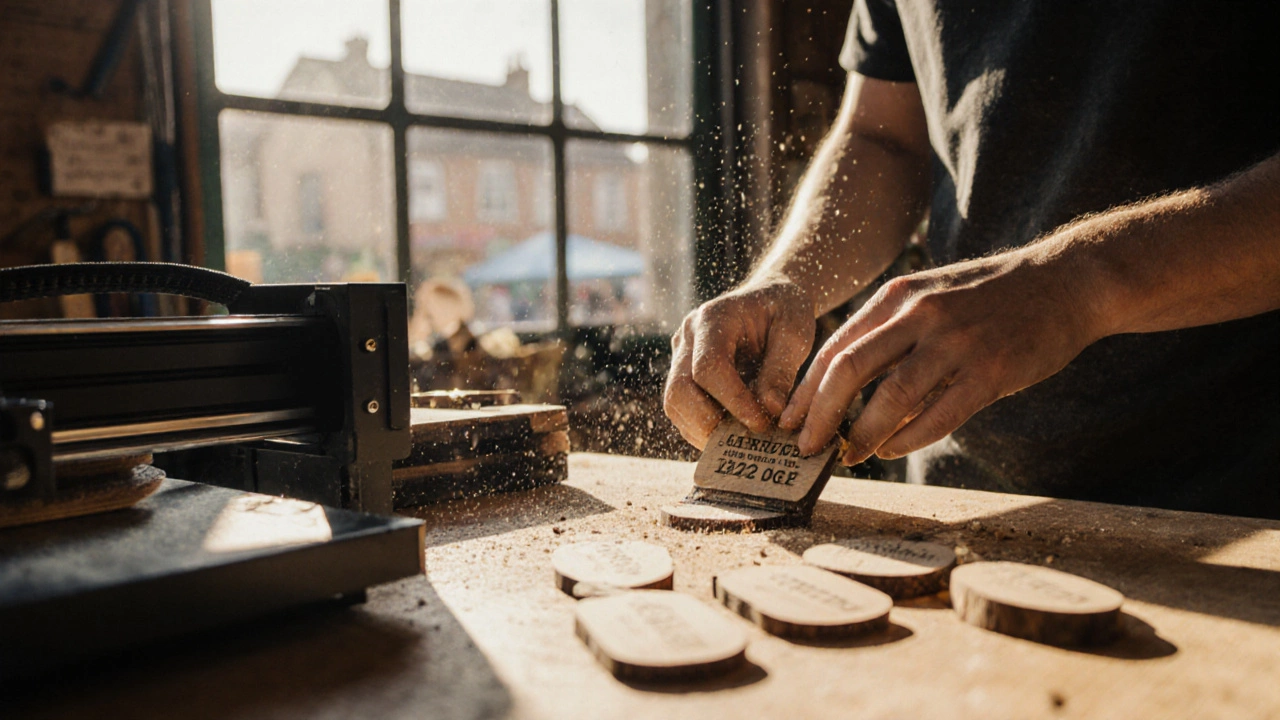Manufacturing Pricing Calculator
Calculate a fair price using the formula from the article: Price = (Materials + Labour + Overheads) × 2.5
Note: Your calculated price should be rounded to the nearest pound for pricing. The formula ensures you're pricing fairly to cover costs and make a profit. Don't underprice your craftsmanship!
Starting a manufacturing business from zero isn’t about having a big bank account or a fancy degree. It’s about solving a real problem with something you can actually make. In the UK, over 62% of small manufacturing businesses began with under £10,000 in startup cash. You don’t need to build a factory on day one. You need to build something people will pay for.
Find a problem you can solve with your hands
Most people think manufacturing means big machines and assembly lines. But in 2025, the most successful small manufacturers are the ones who fix small, annoying problems. Think about what you’ve struggled with yourself. Maybe you’ve bought a kitchen gadget that breaks after three uses. Or you’ve seen local cafes struggling to find durable, eco-friendly takeaway containers. Those are your starting points.
Don’t chase trends. Chase friction. Walk around your local market, chat with shop owners, ask delivery drivers what they wish they had. One Birmingham-based maker started by noticing that local gardeners kept breaking cheap plant labels. He began making weatherproof, laser-engraved wooden tags from scrap pallet wood. He sold them at farmers’ markets. Within 18 months, he was supplying 12 garden centres. He never had a website until year two.
Start small, test fast, scale smart
You don’t need a factory. You need a workbench. Start with manual tools or a single machine you can rent or buy secondhand. A CNC router, a 3D printer, or even a sturdy sewing machine can be your first production line. Many UK small manufacturers begin by making 5-10 units at a time, selling them locally, and using feedback to improve.
Here’s how one person in Wolverhampton did it:
- Bought a used metal bending brake for £800 off eBay
- Made 15 custom brackets for local bike repair shops to hold tool racks
- Asked each shop owner: "Would you buy this again? At this price?"
- Used their answers to tweak the design
- Rebuilt 30 units with improved welds and powder coating
- Started selling on Etsy and local Facebook groups
Within six months, he was turning a profit. He didn’t take a loan. He didn’t hire anyone. He just kept making better versions of one thing.
Use what’s already around you
Manufacturing isn’t just about making things. It’s about using waste. In the UK, over 1.5 million tonnes of industrial scrap metal, fabric offcuts, and plastic remnants go to landfill every year. Many small manufacturers are turning that into profit.
Look for:
- Local workshops closing down - they often sell machines cheaply
- Recycling centres with scrap bins - you can buy aluminium sheets, wood offcuts, or even old conveyor belts for pennies
- Community maker spaces - places like The Forge in Birmingham offer shared tools, training, and even small-scale production help for under £50/month
One woman in Stoke-on-Trent started making planters from recycled ceramic shards and broken tiles. She sourced the materials from local builders’ skips. Her first batch? 20 units made in her garage. She sold them all in two days at a craft fair. Now she employs two people and supplies garden centres across the West Midlands.

Know your legal basics - no lawyer needed
You don’t need to hire a solicitor to start. But you do need to know three things:
- Business structure: Register as a sole trader first. It’s free, takes 10 minutes online, and lets you start selling immediately. Later, you can switch to a limited company if you grow.
- Product safety: If you’re making anything that touches food, children, or gets plugged in, you need to follow UK product safety rules. The Health and Safety Executive has free guides online. For non-electrical goods, you usually just need to label them with your name and address.
- Taxes: Register for Self Assessment with HMRC as soon as you make your first sale. You’ll pay income tax and National Insurance. Keep simple receipts - a phone photo of each invoice is enough to start.
Don’t wait to be "ready." Start recording sales and expenses now. Even if you only sell one item a week, you’re building a paper trail that makes everything easier later.
Get your first 10 customers - without ads
Forget Facebook ads. Your first customers come from real places:
- Local craft fairs - pay £20 for a stall. Talk to every person who stops. Ask what they wish they could buy locally.
- Facebook Marketplace - post photos of your product being made. People love seeing the process.
- Independent shops - walk in with a sample. Ask: "Would you stock this? I’ll give you 40% off and take back unsold stock." Most say yes if it’s unique and well-made.
- Instagram Reels - film 15 seconds of you making one item. No fancy lighting. Just real hands, real tools. Use hashtags like #MadeInBirmingham or #SmallBatchManufacturing.
One maker in Coventry started selling handmade brass door handles. He didn’t have a website. He took photos of them on old doors in his neighbour’s house. He posted them on a local Buy Nothing group. Got 17 orders in 48 hours. He still doesn’t have a website - he takes orders via WhatsApp.
Price it right - or you’ll fail
Most new makers underprice. They think, "I only spent £5 on materials, so I’ll sell for £10." That’s not enough.
Use this simple formula:
Price = (Materials + Labour + Overheads) × 2.5
- Materials: What you actually paid for the stuff you used
- Labour: What you’d pay someone else to do this work. If you’re working 4 hours a day, that’s £15/hour = £60/day
- Overheads: Rent, utilities, tool depreciation, packaging. Even if you work from home, add £10-£20/week
Example: You make wooden cutting boards.
- Materials: £8
- Labour: 2 hours × £15 = £30
- Overheads: £15/week ÷ 5 boards = £3
- Total: £41 × 2.5 = £102.50
Round to £99. That’s not expensive - it’s fair. People pay for craftsmanship. They just need to see the value.

Build a system, not a dream
Success in manufacturing isn’t about being the next Tesla. It’s about being consistent. You need systems:
- A simple spreadsheet for tracking materials, time, and sales
- A folder for customer feedback - save every comment, good or bad
- A calendar for restocking materials before you run out
- A routine: Make 3 units every Tuesday. Ship every Friday.
One maker in Sheffield told me: "I don’t think about growing. I think about showing up. If I make 5 good things every week, I’ll have 260 in a year. That’s a business."
What to avoid
Here’s what kills most small manufacturing startups:
- Buying expensive machines before you’ve sold your first product
- Trying to make 20 different products at once
- Waiting for "perfect" quality before selling
- Ignoring feedback because "I know better"
- Not tracking costs - you can’t improve what you don’t measure
Don’t rush. Don’t compare yourself to big brands. Focus on one thing. Make it better. Sell it. Listen. Repeat.
You don’t need permission to start
The biggest myth? You need capital, connections, or a business plan to begin. You don’t. You need curiosity, grit, and a willingness to learn from every mistake.
There are thousands of small manufacturers across the UK right now - in garages, sheds, and spare rooms - making things people love. They didn’t wait for the perfect moment. They started with what they had, and kept going.
What’s one small thing you could make this week? Start there. Not next month. Not when you have more money. Now.
Do I need a business license to start manufacturing in the UK?
No, you don’t need a special manufacturing license to start small. If you’re a sole trader making under £1,000 a year, you don’t even need to register with HMRC. But you must follow product safety rules. If your product is for children, food, or electrical use, you must comply with UK regulations. Register as a sole trader online - it’s free and takes 10 minutes. That’s your official start.
How much money do I really need to start a small manufacturing business?
You can start with under £500. Many makers begin with £100-£300 for materials and a secondhand tool. A basic sewing machine, a used CNC router, or a metal bender can be found for under £500. Focus on tools you can rent or borrow first. Your first goal isn’t to own equipment - it’s to prove people will buy what you make.
Can I make manufacturing products from home?
Yes. Most UK small manufacturers start in garages, sheds, or spare rooms. You need space to store materials, work safely, and ship orders. Check your tenancy agreement - some landlords restrict commercial activity. But if you’re not causing noise, mess, or extra traffic, most won’t care. Many local councils offer home-based business permits for under £50/year if you need formal approval.
What are the most profitable small manufacturing niches in 2025?
The most profitable niches right now are: custom metal brackets for local tradespeople, eco-friendly packaging for small food brands, handmade wooden kitchen tools, recycled textile accessories, and repairable hardware for vintage appliances. These work because they solve real problems, use local waste, and can be made in small batches. Profit comes from repeat buyers, not volume.
How do I find customers without spending on ads?
Start local. Go to craft fairs, farmers’ markets, and independent shops. Offer to leave samples with shop owners. Post on local Facebook groups and Nextdoor. Film short videos of you making your product - people love authenticity. Use hashtags like #MadeInUK or #SmallBatchMaker. Your first 10 customers will come from people who know you, trust you, or saw you in person.
